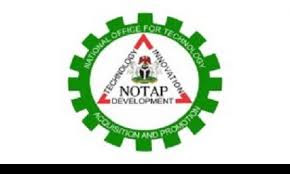All applications
for Technology Transfer Agreements
should be governed by the following rules:
(a)
Technology
contracts should include a provision whereby the recipient enterprises in
Nigeria acquires explicit rights for the use and exploitation of the technology
in question, and the period covering these rights should be clearly specified
in the contract.
(b) In cases where the
Nigerian enterprise is acquiring the right to practice a process, the concept
of know-how should be clearly expressed and defined in the contract. In this
connection, concepts such as “technical information” or “technical services”
should only be treated as complementary to the know-how.
(c) Provision for capacity
building must be part of all Agreements signed, and details on the Nigerians
understudying the experts should be readily available and submitted, to ensure
that skill is domesticated.
(d) All contracts should make
provision for deduction of appropriate local taxes, such as withholding tax, VAT,
etc.
(e) All agreements should
incorporate research activities carried out in-house and also in collaboration
with the Nigerian National Innovation System such as Universities, Research
Institutes, private laboratories, Polytechnics, etc.
(f) Companies which sell
imported products should separate the net sales of the imported products from
the net sales of the locally manufactured products and this should be reflected
in their Audited Accounts. Payment of technology fees should be based only on
the locally manufactured products.
(g) All Nigeria Government
Projects must be governed by Nigerian Laws of Arbitration and the seat of
arbitration should be in Nigeria.
(h) There would be no approval
for agreement based on assembling of Completely Knocked Down (CKD) parts
brought into the country except payment for short term technical services
relating to such project.
(i) The scope of services in
technology transfer agreements should clearly state the services to be rendered
by the transferor/licensor.
(j) The technology content of
the agreement should state the methods for the domestication of technology,
local raw material development, skills acquisition, etc.
(k) A detailed plan for the
local development and production of raw materials used in manufacture, as
substitute for imported raw materials.
(l) Companies sourcing over
75% of its raw materials from abroad will not enjoy enhanced technology
transfer fees, in particular, if it has been in operation in Nigeria for more
than 5years without making efforts to source its raw materials locally.
Companies in this category should render Technical Support Service and encourage
indigenous entrepreneurs in that sector to produce raw materials or
intermediary products that will meet the required standard.
(m) Evidence of registration
of intellectual property example; trademark, patent, know-how, must be in place.
(n) Technology transfer
agreements relating to food items such as bread, noodles, sausage, etc will no
longer be approved because there is no technology content. Payment will only be
approved where the agreement is for short technical services for installation,
commissioning of plants, training, etc to enable the recipient company commence
operation. However, 1-2% of net sales may be approved for a start-up company
involved in this type of business to enhance its smooth take off.
(o) All fees for technology
transfer agreements relating to packaging using state of the art technology
should be tied to profit before tax. However, where the company’s equity is
wholly foreign owned, evidence of capital importation should be provided to
enable transferors repatriate their earnings through Personal Home Remittance
(PHR).
(p) Details of expatriates
including entry visas and other immigration documents should be submitted along
with evidence of non – availability of skills in Nigeria.
(q) Submission of Shareholders
agreement that the Management of Company can enter into a Management or any
other Technology Transfer Agreement with foreign technical partner on its
behalf.
(r) Trade Marks that are not
generating exports cannot be approved.
(s) Original copies of Annual
Accounts should be submitted to the Office (not photocopies).
In the telecom sector, no
Trademark License Agreement is allowed as the reputation of the service
provider has been considered by the Nigerian Communications Commission (NCC)
before License is granted for provision of such services. However, for purposes
of ownership and also to prevent infringement, Trademarks can be registered at
the Patent and Trademark Registry, Federal Ministry of Commerce & Industry.
Our website contains a
wealth of free, reliable legal information. Here, you'll find information about
starting and legally maintaining a company, partnership, or sole proprietorship,
as well as information about franchises, general business law and taxation. To learn more about the legal issues surrounding businesses
in Nigeria and to find answers to all of your business law questions, refer to
the articles, answers and other resources on http://www.legalemperors.com.
For more on business,
corporate & property law, see the
useful links/labels on http://www.legalemperors.com.
CLICK TO READ ABOUT OUR LEGAL SERVICES
DEBT RECOVERY
BUSINESS & CORPORATE SERVICES
TAX SERVICES
REGULATORY COMPLIANCE
DEBT RECOVERY
BUSINESS & CORPORATE SERVICES
TAX SERVICES
REGULATORY COMPLIANCE
FOR FURTHER INQUIRIES AND MORE
VIEW OUR COMPLETE PROFILE
VIEW OUR CAPABILITY STATEMENT
LEARN MORE
CONTACT US
VIEW OUR COMPLETE PROFILE
VIEW OUR CAPABILITY STATEMENT
LEARN MORE
CONTACT US
© Onyekachi Duru Esq and www.legalemperors.com, 2016 (All Rights Reserved).
Unauthorized use and/or duplication of this material without express and
written permission from this site’s author and/or owner is strictly prohibited.
Excepts and links may be used, provided that full and clear credit is given to Onyekachi Duru Esq and www.legalemperors.com with appropriate and specific directions to the
original content.
The post you have just read
and indeed all other posts emanating from http://www.legalemperors.com contains general legal information and does not contain legal advice. http://www.legalemperors.com is not a law firm or a substitute for a lawyer or law firm. The law is
complex and changes often.
For Legal Advice, please
ask a Lawyer
